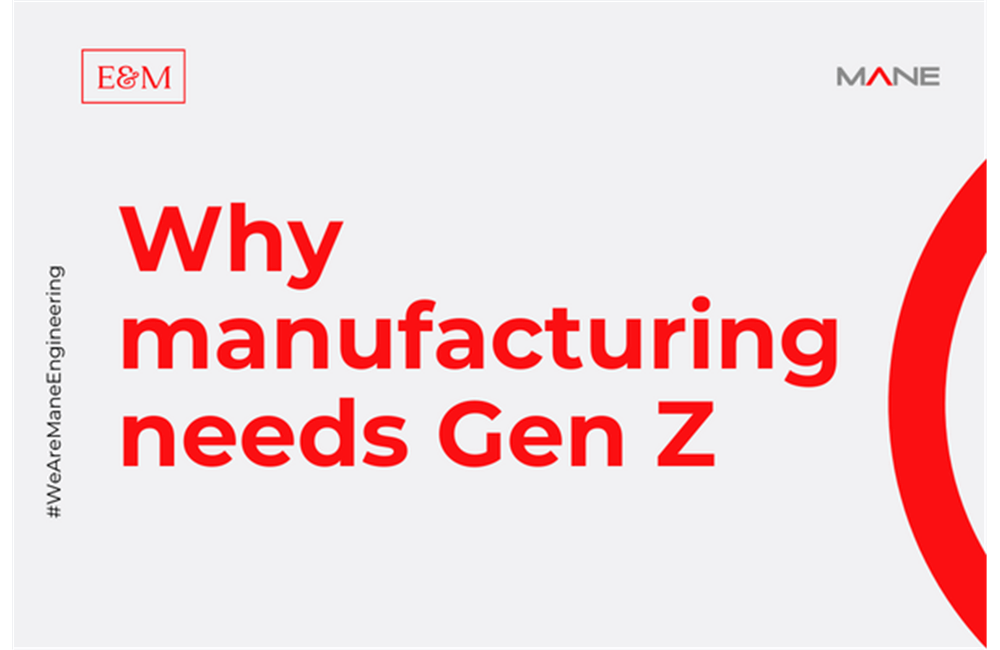Why manufacturing needs Gen Z
27 Oct, 202110 minsIf COVID has made one thing clear, it’s that the manufacturing sector and its frontline work...

If COVID has made one thing clear, it’s that the manufacturing sector and its frontline workers are becoming more important than ever. This renaissance is happening as the industry faces two crises: supply chains are still stretched and broken and fewer workers are on site thanks to social distancing, and a growing labour shortage threatens to become the next global disaster. In the US, there are likely to be 2.1 million unfilled manufacturing roles by 2030. Worldwide, manufacturing companies are facing the retirement of the older generation and the need to bring in the new one.
Gen Zs, born between the mid-1990s and 2010, are now entering the workforce in increasing numbers. By 2030, there’ll be over a billion of them in the global workforce, so attracting Gen Z talent to manufacturing will be vital in addressing labour shortage.
One hopeful sign, according to a survey by Parsable, is that the pandemic has improved Gen Zs’ perceptions of manufacturing as an industry. 56% say their views on manufacturing have changed because of COVID, and 77 of those now see manufacturing as more important.
However, the same survey found there are still obstacles to address. Manufacturing jobs have an undeserved bad reputation among Gen Zs: 65% think entry-level manufacturing positions pay less than the average entry-level job. Actually, manufacturing salaries in the UK are 13% higher than the national average.
Another misconception is that manufacturing roles are just unskilled labour. The survey found 30% of Gen Zs think a manufacturing job “may be a low-skilled, manual job.” But manufacturing is actually a hotbed of technological innovation, with advanced technology seeing increasing use to make frontline workers’ jobs safer and more efficient. That means more opportunities for highly skilled tech professionals, and more opportunities to gain technical expertise in even the least skilled roles.
However, while 54% of Gen Zs had never considered a career in manufacturing before COVID, 24% of those are now open to the idea. This is a step in the right direction, but there is still more work to do to correct misconceptions and attract more Gen Zs to manufacturing.
One vital step is to partner with universities and vocational colleges to educate students on what a career in manufacturing is really like. It’s equally crucial for hiring managers to make the benefits of a manufacturing career very clear, whether that’s higher salaries, growth opportunities, job security or diversity.
The increasing role of technology in making manufacturing more sustainable and future-focused will also be appealing to Gen Zs. Complaints about “kids on their phones” are ringing hollow as it becomes clear that we need those kids to bring their phones, and their fluency with mobile technology, to work and use them to save the manufacturing industry.
This means mobile technology needs to be front and centre in recruitment efforts, including providing digital onboarding, training and professional development. As older workers begin to retire and take with them years of knowledge that are at best stored in a filing cabinet somewhere, making that information available in a digital, interactive format will allow for a smoother transition and a successful career in manufacturing for the workers of the future.


